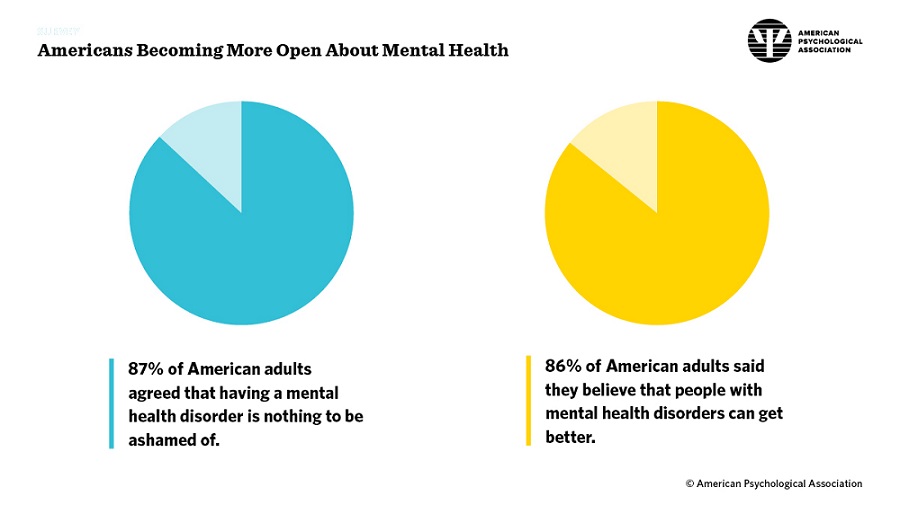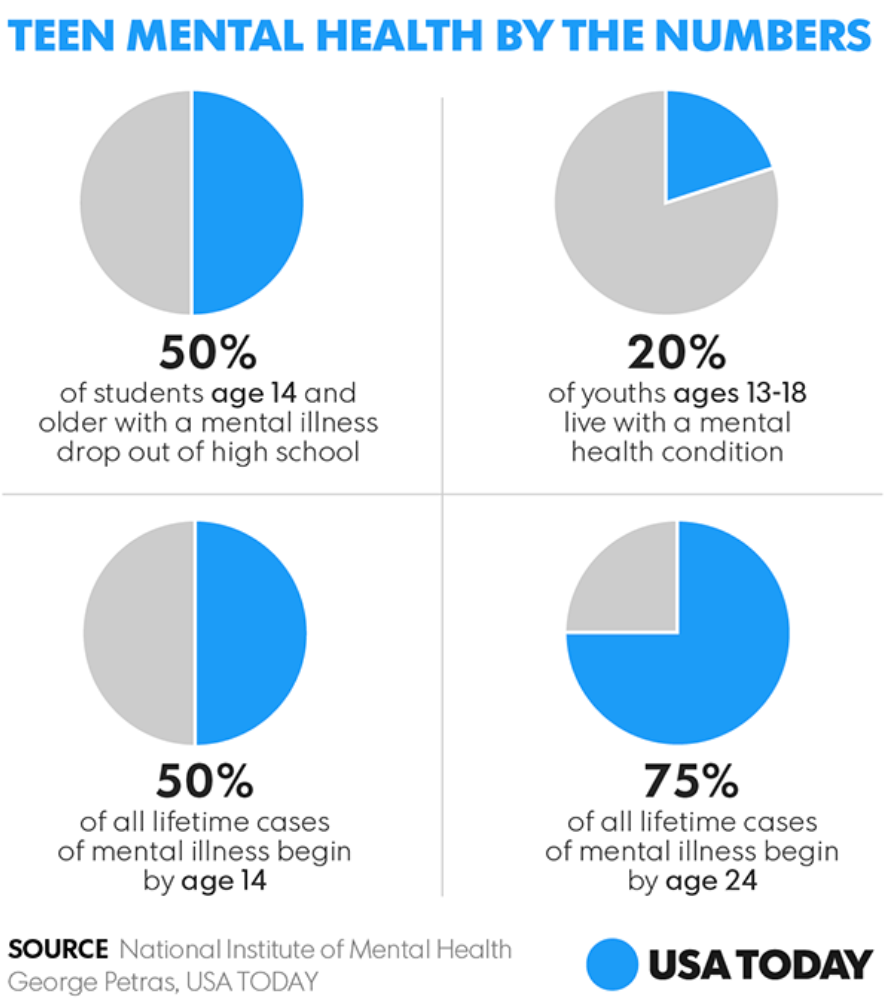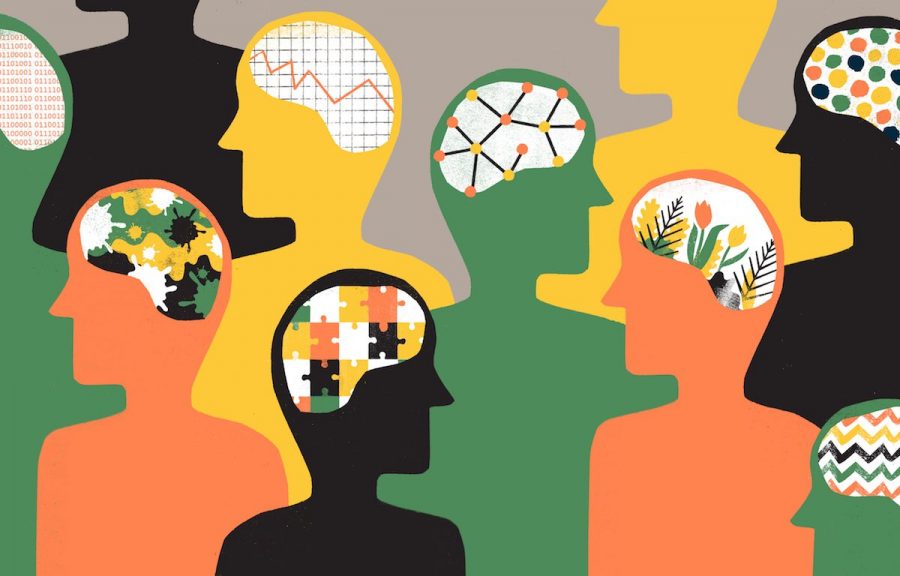The Stigma Around Mental Health is Dying
In recent years the stigma of mental health has declined, and here’s why
February 26, 2021
Even just 10 years ago, mental health was rarely discussed. Those with mental illnesses were looked down upon. Society viewed physical health as much more significant. However, not only has awareness vastly increased over the past couple of years, but federal laws have equalized mental and physical health. Society has come a long way, but there are still many ways to improve.
According to NBC News, mental health advocate and reporter Nicole Spector, claimed that, “I’ve seen the advancements up close and personal and can say with certainty that in 2010 I wouldn’t have dreamed of writing pieces like, ‘how to talk about mental health issues at work’ or ‘A mental health check-in:14 questions to ask your child’ for a national news outlet. Such topics just weren’t so, well, topical back then.”
In a survey by the American Psychological Association (APA), a total of 87% of American adults agreed that having a mental health disorder is nothing to be ashamed of. The survey found that 81% of Americans expressed they would be comfortable becoming friends with people that struggle with mental health. This demonstrates that the majority of Americans have become less judgmental and degrading when discussing mental health disorders.

Why is the stigma around mental health dying? Dr. Mark Ommeren, a mental health expert who works with the World Health Organization, explained to NBC News that, “…a constellation of factors and moments have led to our amplified awareness of mental health…Traditional media (including TV dramas like ‘This is Us’), social media (which sees countless individuals and groups sharing #mentalhealth stories), and perhaps above all, mountains of clinical research, have helped steer us in a more enlightened direction.”
For instance, Ariana Grande posted on Instagram, “Hi my loves. Time for some honesty. My anxiety and depression have been at an all-time high lately…” She went on to explain that she was pushing through as hard as she could, but openness from influencers and celebrities such as Grande have helped people feel more comfortable discussing mental health.
Professor of Psychiatry and Behavioral Sciences at Stanford, Keith Humphreys, claimed that federal laws under President Obama have put mental health on par with physical health. He referenced both The Mental Health Parity and Addiction Equity Act of 2008 and the Affordable Care Act (ACA) of 2010. “I was at the White House at the time and it was so extraordinary for me to look and see an essential healthcare benefit defining mental health. It was the dream.” Keith expressed to NBC News. Mental health has now become a legitimate reason for missing school in America. Getting injured physically is equal with being mentally sick when needing a day off.
One of the reasons mental health has become more normalized is because mental illnesses have unfortunately increased largely in teenagers. “The percentage of young Americans experiencing certain types of mental health disorders has risen significantly over the past decade with no corresponding increase in older adults,” an article from the American Psychological Association reported. “The rate of individuals reporting symptoms consistent with major depression in the last 12 months increased 52 percent in adolescents from 2005 to 2017.”

The study suggests that these trends could be due to social media as the modes of social interaction have changed enough to affect mood disorders. It also pointed out that young people are not sleeping as much as they did in previous generations, possibly due to long hours spent on social media. As more young Americans struggle with their mental health, the public has realized that mental health disorders are nothing to be ashamed of, and should be normalized. The majority of Americans have come to realize that instead of fearing or judging those that are mentally struggling, they should be cared for and helped.
However, Humphreys claimed that there was a lot of opposition when attempting to pass laws that protected those with mental health disorders, and the industry continues to fight against them. There is a dire need for mental health care, and many still do not get all the help they need. According to the APA mental health survey, 33% agreed with the statement, “people with mental health disorders scare me”, and 39% agreed they would view someone differently if they knew that person had a mental health disorder. The proportion of people comfortable with dating someone with a mental health disorder was only 51%.
Mental health stigmatism still persists and many do not believe there is no shame associated with being mentally ill. Many influencers on social media and famous celebrities have claimed that awareness for mental health must continue to rise and that more help is needed.
Though improvement may be necessary reducing the stigma around mental health, America has come a long way. As it has become widely discussed and the public has realized having a mental illness is nothing to be ashamed of, the stigma around mental health is ultimately dying.

